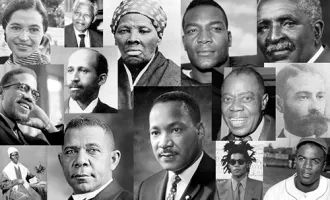This Date in UCSF History: Social Disparities are Hazardous to Health
This story was originally published in Synapse on September 21, 2000. Dr. David Satcher, the sixteenth U.S. surgeon general and the first African American man to hold the position, was the keynote speaker at the inaugural symposium for UCSF’s Center for Health and Community.
Dr. Satcher, who wants to be remembered as the surgeon general who “listened to the American people,” offered plans to eliminate disparities between the level of disease and disability among different racial groups.
Many studies have found that blacks and Hispanics receive lower levels of care than their white counterparts.
For example, black men are more likely than white men to be sent home after complaining of heart problems; the latter are more likely to receive follow-up care despite the larger rates of heart disease among African Americans.
The problem doesn’t end with heart disease.
According to Dr. Satcher, entire communities have disproportionately low access to quality healthcare. The surgeon general approaches these issues from both a community oriented and an individual standpoint.
He advocates using federal resources for better targeting and to establish programs that will empower communities to eliminate health disparities.
According to Dr. Satcher, specific models are needed for different communities, whether it is to decrease infant mortality rates among African Americans or cervical cancer among Vietnamese women; each community must work together to eliminate disparities.
Dr. Satcher’s Healthy People 2010 Indicators have been simplified to ten categories, down from the hundreds used for 2000.
The leading factors affecting health are physical activity, obesity, tobacco use, substance abuse, responsible sexual behavior, mental
health, injury and violence, the environment, immunization, and access to healthcare. Minorities consistently score low on many of these indicators.
By calling attention to mental health, Dr. Satcher hopes to empower individuals to seek care and eliminate the stigma currently placed on families seeking mental health care. An additional strategy for eliminating healthcare disparities is to develop new partnerships between companies, the American Public Health Association, and national steering communities of religious, educational, and medical leaders.
Dr. Satcher also called for a more sensitive Hollywood and for a decrease in depictions of smoking and violence in the media.
What can we do as students? The task of a medical education, says Dr. Satcher, is to be sensitive to race and gender and eliminate the quality of care disparities.
Quoting poet Robert Frost, Dr. Satcher ended his speech with “‘The woods are lovely dark and deep… but I have miles to go before I sleep.’ So, let’s get started.”



